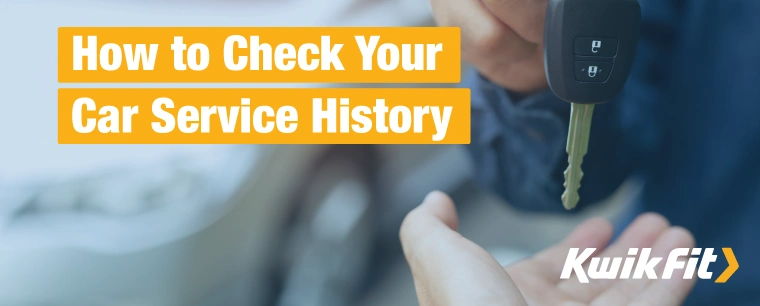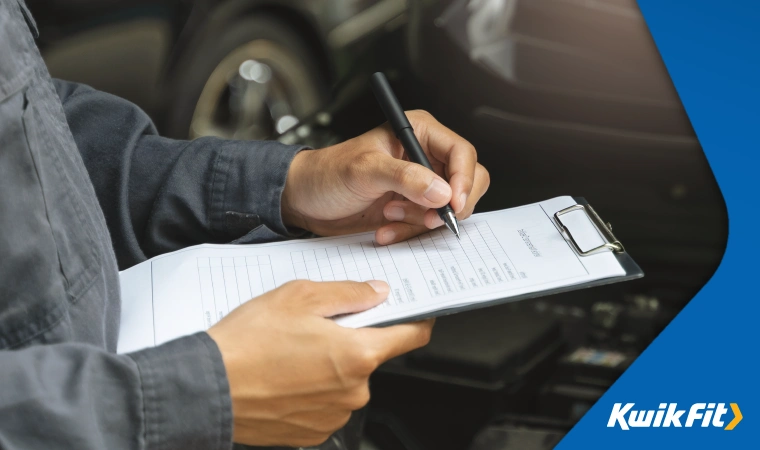How to Check Your Car Service History
Jack Dreyer | Monday 25th March 2024 11:30am

Having a full car service history can be very beneficial, particularly when you come to sell your vehicle. We surveyed over 2,000 car owners and almost 50 per cent of respondents stated they wouldnít be prepared to buy a car without a full service history. Of those who would, 20 percent said they would only do so with a hefty discount. This could leave you severely out of pocket if youíre selling your car.
Nevertheless, a lot of people are purchasing from online marketplaces such as Facebook in recent years as the cost of living has hit peopleís wallets. Although more people are holding onto their cars for longer, rather than pay for maintenance, many people would prefer to try cheap purchasing options. The problem with this is that there is far less security in the transaction which includes an incomplete service history.
If youíre planning on buying a used car, or want to find out more about the history of your own vehicle, itís worth knowing the following points.
What is full service history?
If youíve ever purchased a car, you may have heard of full service history, sometimes also written as FSH. A full service history shows that the car has been serviced either every year or every 12,000 miles. This service would either have been completed by the vehicle manufacturer or alternatively at an approved service centre. It will detail any work thatís been undertaken on the car, such as tyre changes, new brake fluid and replacement oil or more serious repairs, such as a cambelt replacement.
As well as a completed service book showing the technicianís stamp after every service, a full service history should also include any invoices and paperwork issued by the service centre. In the event that a vehicle missed a service or stamp or was taken to a non-approved service centre, then this would count as a partial service history.
A full service history is very desirable as it shows that the car has been well looked after. If youíre purchasing a car, you should ask to see the service history to determine that the vehicle is in the condition that the seller states it is. If youíre selling a car, make sure that you have the service history available for the buyer in case they ask for it. You should be as open as possible with them about the history of the car.
If a car hasnít got a FSH, it doesnít necessarily mean that there will be anything wrong with it. It just means that you wonít know what work has previously been carried out.

How can I find the service history of my car?
Current owners
If youíve lost your service book or misplaced your paperwork, donít fret. Get in touch with your usual service centre, who should have a record of your vehicleís history - either in paper form or electronically. Provided you prove your identity and demonstrate youíre the owner of the vehicle, they should be able to issue you with any missing documentation from the point at which you became the vehicle owner. For the avoidance of doubt, no information will be provided for any period prior to the date of your ownership.
Previous owners
For advice around requesting information about a vehicle from the DVLA and the circumstances in which they would share this information, you can find the DVLA's published advice here.
Perhaps you purchased your vehicle from a dealership. If youíre missing some of the vehicleís service history, they might be able to provide you with some additional information if the car was originally purchased from there.
How to check if the service history is legitimate
When purchasing a second-hand car, donít get caught out by a forged FSH. As sellers know they can demand more money for a vehicle with a full service history, this is a crime that has become more prevalent in recent years. For any vehicle aged three years or under, service records should be held on a central manufacturerís database. You can therefore always contact your vehicleís manufacturer to double-check its service history.
Another check worth carrying out is to ensure that the repair centres listed in the stamp book are legitimate and that they do exist. You could even call them to verify that they worked on the car and that they completed the work listed in the book.
Finally, itís always recommended to ask for proof of paperwork and any invoices and receipts to back up whatís been listed in the service book. This will show that the owner paid for the work that was carried out and will tell you when it was done too.
Keeping your car up to date
The cost of living crisis means more people are choosing to either not maintain their car or go to cheap, risky sellers. Kwik Fit has the Kwik Fit Club, providing tailored membership packages to manage your carís expenses. These packages include cover on wear and accidental damage,* premium tyres and up to 8 alignment adjustments over the contract** among other optional extras, all in a predictable monthly fee.
If you check your service history and realise itís been a while or youíve just purchased a new car, why not get peace of mind by having it serviced? Book in for a service at your local Kwik Fit. Find out whatís included and which servicing option would best suit your car, or get in touch with us and weíll set you up with one of our expert technicians for further advice.
*Subject to our fair use policy
**Subject to spec of vehicle
Any facts, figures and prices shown in our blog articles are correct at time of publication.
Featured Articles
Is it Illegal to Drive With One Headlight?
Saturday 19th July 2025
Wondering if itís illegal to drive with one headlight? Learn about the safety risks and penalties of illegal blown bulbs and why you should fix them promptly.
Air Con in EVs & Hybrids: Experts Answer Your Questions
Monday 30th June 2025
Does air con drain EV batteries? Can you use the air con while charging an electric car? Find out the answers to these questions & more from Kwik Fitís experts.
Why Is Your Car Making a Noise? Fixes & Tips
Friday 13th June 2025
When your car starts making unexpected noises, it can certainly be quite disconcerting; it may be nothing to worry about, but hereís what you need to know.









